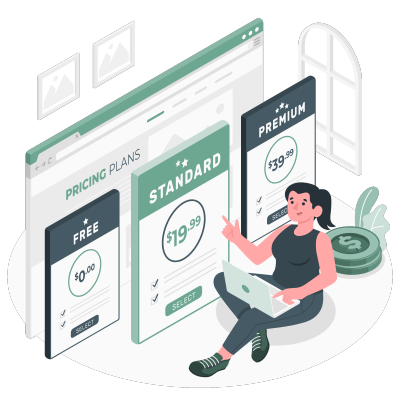Developing a hotel pricing strategy is essential for any hotel business. Without a strategy in place, you may not be charging enough or you could be pricing yourself out of the market. In this article, we will discuss the different types of hotel pricing strategies and how to determine which one is best for your hotel business.
The Importance Of Developing A Good Pricing Strategy
First, let’s discuss the importance of having a good pricing strategy. Many hotel businesses make the mistake of not charging enough for their rooms. This leaves them struggling to cover costs and turning away business. On the other hand, some hotel businesses charge too much and end up with vacant rooms. To be successful, you need to find a balance between what the market will bear and what you need to charge to cover your costs.
Common Forms Of Pricing Strategies For Hotels
There are several common hotel pricing strategies that you can use for your hotel business.
- Occupancy Based Pricing: This strategy is based on the assumption that the more people that stay in your hotel, the more money you will make. To encourage higher occupancy rates, you may offer discounts for longer stays or for booking multiple rooms.
- Forecast Based Pricing: This strategy is based on your hotel’s projected occupancy rate. You will charge more when occupancy is expected to be high and less when it is expected to be low.
- Upselling Based Pricing: This strategy involves upselling your hotel rooms to guests. For example, you may offer a discount for booking a room with a view or with a balcony.
- Loyalty Based Pricing: This strategy rewards loyal customers with discounts or other perks. For example, you may offer a loyalty card that gives guests a discount on their next stay.
- Incentive Based Pricing: This strategy offers incentives to guests for booking their stay in advance. For example, you may offer a discount for booking 30 days in advance.
- Length Of Stay Based Pricing: This strategy charges guests based on the length of their stay. For example, you may offer a discount for stays of 5 nights or more.
- Cancellation Policy Based Pricing: This strategy charges guests based on your hotel’s cancellation policy. For example, you may charge a higher rate for guests who cancel their stay within 24 hours of arrival.
Choosing The Right Pricing Strategy For Your Hotel Business
Now that you know the different types of hotel pricing strategies, how do you choose the right one for your hotel business? There are a few factors that you need to consider.
- Your hotel’s location: If your hotel is located in a popular tourist destination, you may be able to charge more than if it was located in a smaller town.
- The type of hotel: The type of hotel will also affect your pricing. For example, luxury hotels will be able to charge more than budget hotels.
- Your hotel’s amenities: If your hotel offers unique amenities or services, you may be able to charge a premium price.
- The season: Pricing will also vary depending on the season. For example, rates are typically higher in the summer than in the winter.
- Your hotel’s occupancy rate: If your hotel has a high occupancy rate, you may be able to charge more than if it had a low occupancy rate.
Once you have considered all of these factors, you can start to develop your hotel pricing strategy.
Tips For Developing An Effective Pricing Strategy
So how do you go about developing an effective hotel pricing strategy? Here are a few tips:
- Do your research: Make sure you understand your hotel’s costs and the market rates in your area.
- Test different prices: Don’t be afraid to experiment with different prices to see what works best for your hotel.
- Be flexible: Be willing to adjust your prices based on changes in your hotel’s occupancy rate or the season.
- Offer discounts: Offer discounts for longer stays or for booking multiple rooms.
- Communicate your pricing strategy: Make sure your guests are aware of your hotel’s pricing strategy so there are no surprises.
Final Thoughts
By following these tips, you can develop an effective hotel pricing strategy for your hotel business. Remember, your pricing strategy should be flexible and adapt to changes in your hotel’s occupancy rate or the season. And most importantly, make sure your guests are aware of your hotel’s pricing strategy so there are no surprises.

